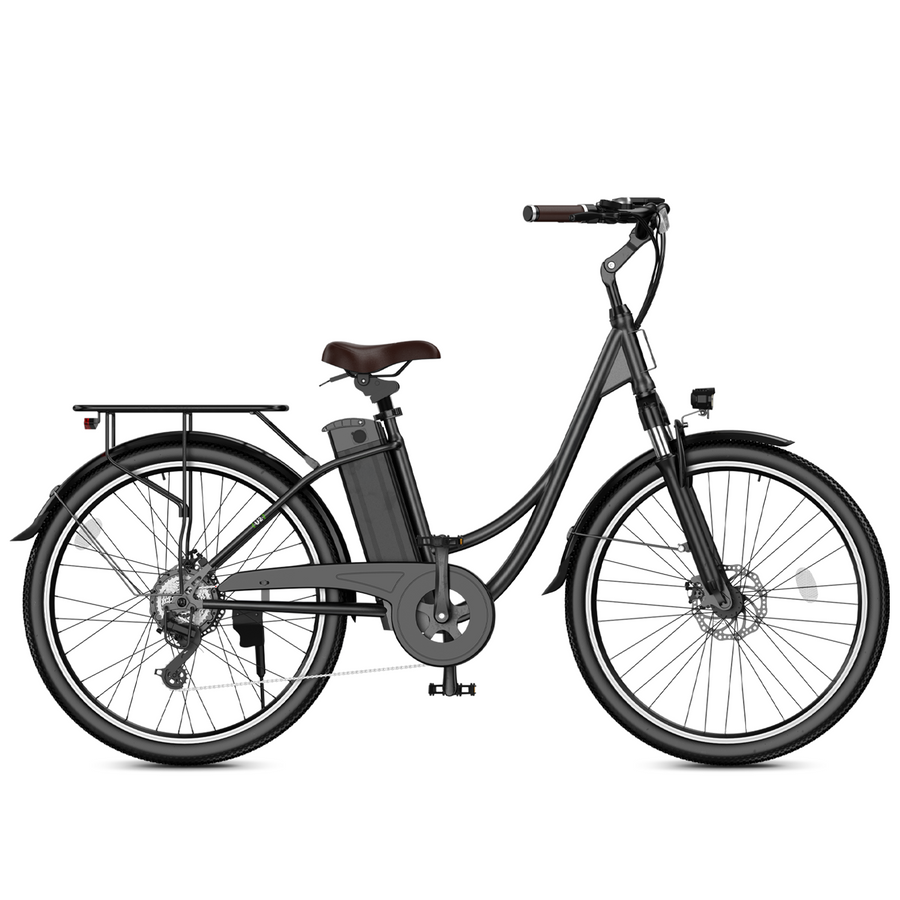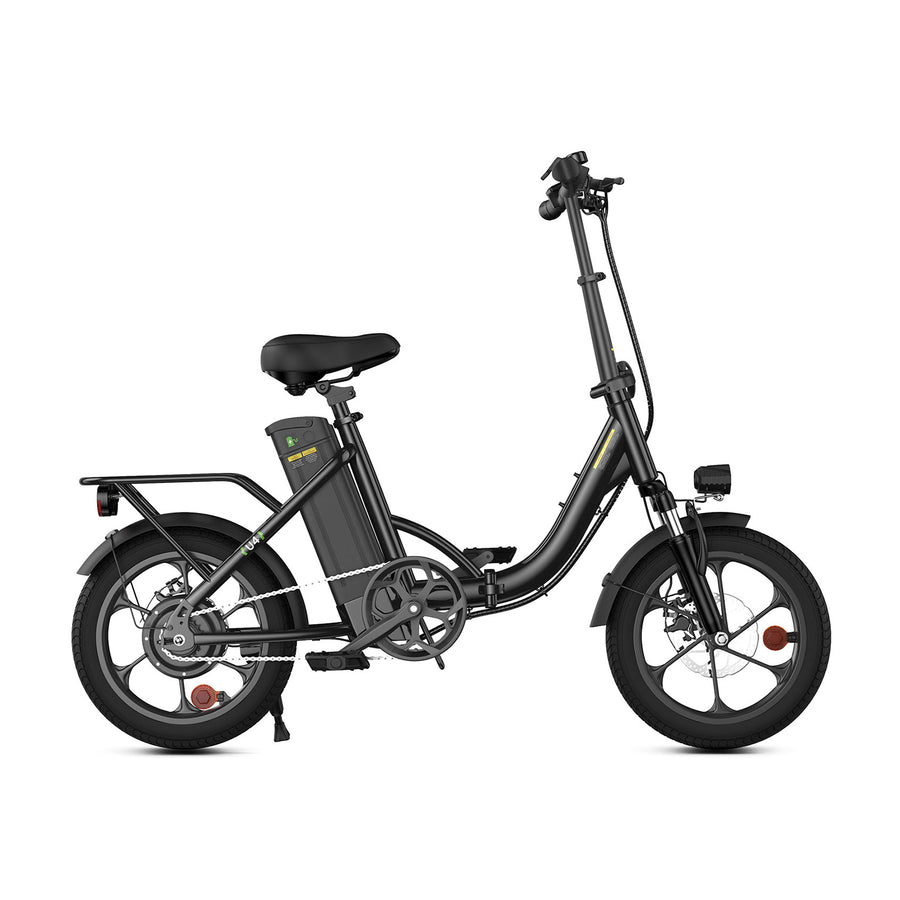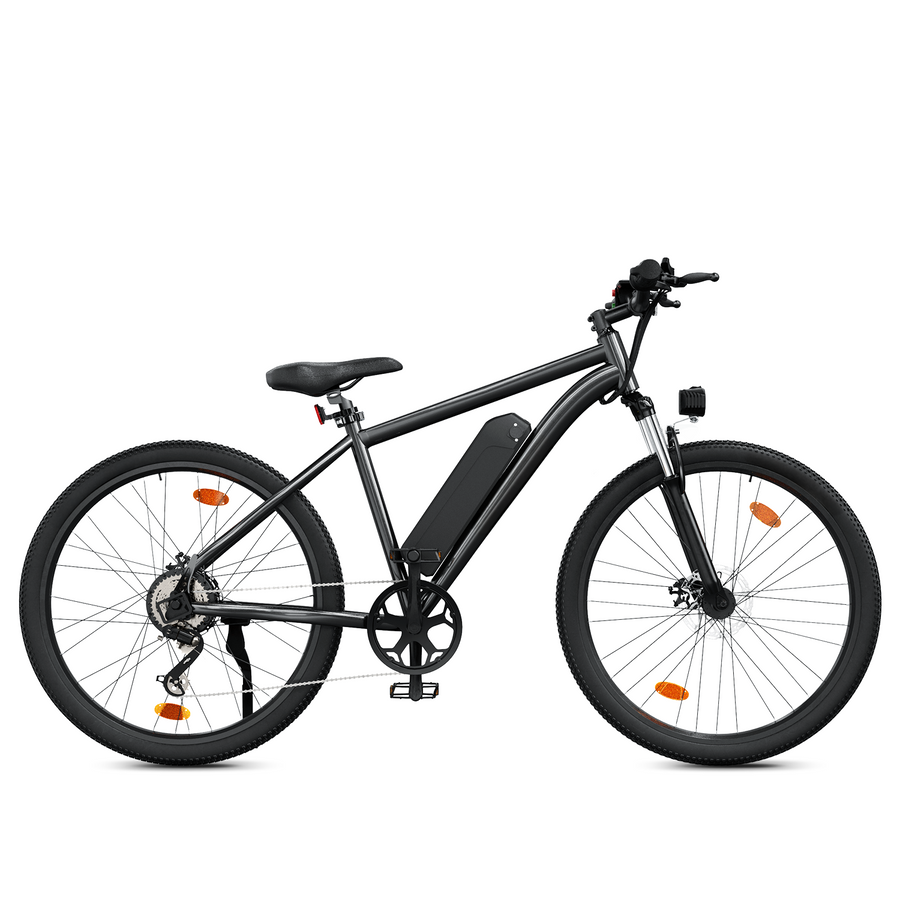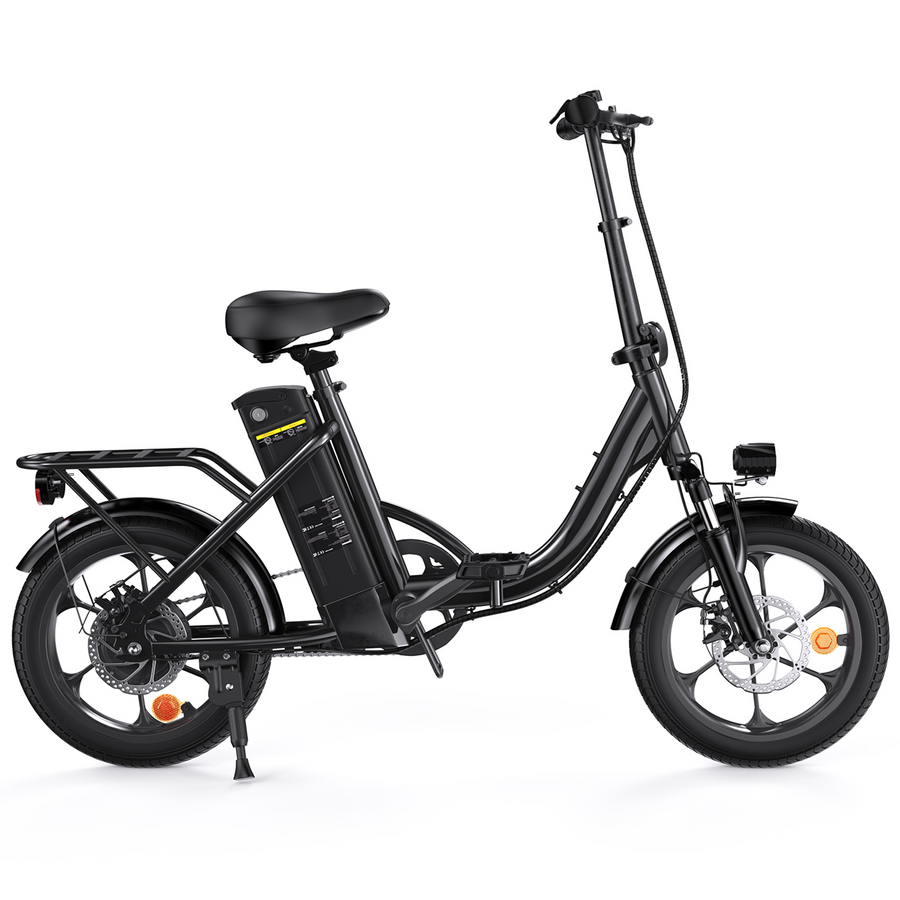Are Electric Bikes Legal in UK

Electric bikes have become an increasingly popular mode of transport in the UK, offering an eco-friendly, efficient, and affordable alternative to traditional vehicles. However, their legal status depends on whether the bike meets specific government criteria. Understanding the laws around electric bikes—what’s allowed, what isn’t, and how different types are classified—is essential for anyone looking to ride one legally on public roads, cycle lanes, or shared-use paths.
What electric bikes are legal in the UK?

In the UK, the only electric bikes that are legal to ride without a licence, insurance, or vehicle tax are called Electrically Assisted Pedal Cycles (EAPCs). These bikes are treated the same as traditional pedal bikes under the law. To qualify as an EAPC, the bike must have pedals that can be used to propel it, and it can have two or more wheels, such as in the case of an electric tricycle.
Motor Power and Speed Limits
The electric motor of an EAPC must have a maximum continuous rated power output of 250 watts and must not assist the rider when the bike is travelling at speeds over 15.5 miles per hour (mph). If the motor is capable of propelling the bike without pedalling, this function must be limited to 15.5mph and the bike must have received official approval.
Identification and Markings
All EAPCs must be clearly marked with specific information. This includes the manufacturer’s name and the continuous rated power output of the motor. Additionally, the bike must also display either the voltage of the battery or the maximum speed the motor can assist to. These markings help confirm the bike's legal status.
Who Can Ride and Where
You must be 14 years or older to legally ride an EAPC in the UK. These bikes can be used on public roads, cycle lanes, and bike paths, but not on pavements. No licence, insurance, or vehicle registration is required, making EAPCs a convenient and accessible mode of transport.
When an Electric Bike Is Not an EAPC

If an electric bike does not meet the EAPC requirements, it is classified as a motorcycle or moped under UK law. This includes bikes that can go faster than 15.5mph with motor assistance, have a motor output above 250W, or lack pedals. These types of electric bikes must be registered, taxed, and insured, and the rider must hold a valid driving licence and wear a motorcycle helmet that meets UK safety standards.
Vehicle Approval for Certain Bikes
Some electric bikes—like those with a ‘twist and go’ throttle that can operate without pedalling up to 15.5mph—require vehicle approval. This is usually handled by the manufacturer or importer before the bike is sold. If it hasn’t been approved, the owner must apply for Motorcycle Single Vehicle Approval (MSVA) to legally use it on the road.
Are throttle electric bikes legal in the UK?
Throttle electric bikes—also known as “twist and go” e-bikes—can be legal in the UK, but only under specific conditions. If the bike can be propelled without pedalling (using only the throttle) and still complies with the EAPC (Electrically Assisted Pedal Cycle) regulations, it must not exceed 15.5mph and must have a motor output of no more than 250 watts.
Crucially, from January 1, 2016, all new throttle-controlled e-bikes must be type approved to be used legally on public roads. This means that manufacturers or importers must ensure the bike receives individual vehicle approval and is properly labelled with an approval number. If the bike was sold before that date and meets all EAPC requirements, it may still be used without registration, insurance, or a driving licence.
However, any throttle e-bike that does not meet EAPC standards is legally classified as a moped or motorcycle and must comply with the same legal requirements—such as registration, insurance, helmet use, and licence holding.
Penalties and Fines for Using Illegal Throttle E-Bikes
Using a throttle electric bike that does not comply with EAPC regulations—and has not been registered and insured as a moped or motorcycle—can lead to serious legal consequences in the UK. If caught riding an illegal e-bike on public roads or cycle paths, you may be fined for riding without insurance, which carries a fixed penalty of £300 and six penalty points on your driving licence.
In more severe cases, especially if the rider lacks a valid driving licence or fails to register the vehicle, the e-bike may be confiscated by the police, and the rider could face court prosecution, larger fines, or even a driving ban.
Additionally, using such a bike on cycle tracks or pavements is also illegal and may result in separate penalties under public safety or traffic laws. Therefore, it is essential for anyone using a throttle e-bike in the UK to ensure their vehicle is fully compliant with current legislation to avoid legal risks.
Are electric dirt bikes legal in the UK?
Electric dirt bikes can be legal in the UK, but it depends entirely on where and how you intend to use them. Most electric dirt bikes are not classified as Electrically Assisted Pedal Cycles (EAPCs) because they do not have pedals and are typically designed for off-road performance, with high power outputs and top speeds exceeding the legal limit for road-legal e-bikes. As a result, these bikes fall under the category of motor vehicles, and their use on public roads is heavily restricted.
To be legally ridden on public roads, an electric dirt bike must be road-registered, have a valid MOT certificate (if required), be insured, and the rider must hold a valid driving licence. The bike must also meet all DVLA and UK road safety requirements, including proper lighting, indicators, number plates, and mirrors. In practice, most electric dirt bikes are not manufactured for road use, and converting one for road legality can be expensive and complex.
However, electric dirt bikes can be legally used on private land, such as farms, motocross tracks, or private estates, with the landowner’s permission. No licence, insurance, or registration is required in this case—but the bike must not be ridden on pavements, footpaths, bridleways, or public roads, even to access private property. Doing so without meeting the legal requirements is a criminal offence.
Are electric bikes road legal in the UK?
Yes, electric bikes are road legal in the UK — but only if they meet certain requirements set out by the UK government. These road-legal electric bikes are called Electrically Assisted Pedal Cycles (EAPCs).
Are 3 wheeled electric bikes legal in the UK?
Three-wheeled electric bikes (electric tricycles) are legal in the UK if they meet the Electrically Assisted Pedal Cycle (EAPC) requirements—meaning they must have pedals, a motor with a maximum continuous power of 250 watts, and provide assistance only up to 15.5 mph. When these conditions are met, the trikes do not require a licence, insurance, or registration and can be ridden on roads and cycle paths.
However, if the electric tricycle exceeds these limits or has a throttle without pedal assist, it is classified as a moped or motorcycle and must follow stricter regulations including licensing, insurance, and registration.
FAQ
How fast can an electric bike legally go in the UK?
In the UK, electric bikes are legally allowed to provide motor assistance only up to 15.5 mph (25 km/h) with a maximum motor power of 250 watts; beyond this speed, the motor must stop assisting. Bikes exceeding this speed or power limit are classified as motor vehicles and require registration, insurance, and a driving licence to be ridden legally on public roads.
Can you ride an electric bike on the pavement in the UK?
No, in the UK, it is generally illegal to ride an electric bike on the pavement. Rule 64 of the Highway Code prohibits cycling on footpaths, and this applies to all bicycles, including electric ones. Section 72 of the Highway Act 1835 also makes it an offence to "wilfully ride" on footpaths, which includes pavements.
Electric bikes that comply with the UK's Electrically Assisted Pedal Cycle (EAPC) regulations are treated the same as regular bicycles. This means they can be ridden on roads, cycle lanes, and shared-use paths where cycling is permitted. However, they are not permitted on pavements unless specifically designated as shared-use paths, which are clearly marked with appropriate signage.
are 1000w electric bike conversion kits legal in uk
In the UK, 1000W electric bike conversion kits are not road legal because they exceed the legal motor power limit of 250W for Electrically Assisted Pedal Cycles (EAPCs). Even if the kit includes a speed limiter or switch to reduce power, it is still illegal if the bike can be adjusted to exceed 250W or 15.5mph. Using such a bike on public roads without registration, insurance, and a valid driving licence can result in fines, penalty points, or vehicle seizure. These high-powered kits are only legal for use on private land with the landowner’s permission.
Do I need insurance for an electric bike?
In the UK, you do not need insurance to ride an electric bike that meets the Electrically Assisted Pedal Cycle (EAPC) criteria—meaning it has pedals, a motor no more than 250 watts, and motor assistance that cuts out at 15.5 mph. These electric bikes are treated like regular bicycles and don’t require insurance, registration, or a driving licence.
However, if your electric bike exceeds these limits (for example, has a more powerful motor or throttle) and is classified as a moped or motorcycle, you must have valid insurance, registration, and a driving licence to ride it legally on public roads.
Can you ride an electric bike without pedaling?
In the UK, whether you can ride an electric bike without pedaling depends on the type of electric bike. For legal Electrically Assisted Pedal Cycles (EAPCs), the motor only provides assistance when you pedal — you cannot use the motor alone to propel the bike without pedaling.
Throttle-controlled bikes that allow riding without pedaling are generally not classified as EAPCs and are considered mopeds or motorcycles, which require registration, insurance, a driving licence, and helmet use. Riding such a bike without meeting those legal requirements is illegal on public roads.
Conclusion
Electric bikes are legal in the UK as long as they meet the Electrically Assisted Pedal Cycle (EAPC) requirements: a maximum motor power of 250 watts, pedal assistance only, and a speed limit of 15.5 mph. These bikes do not require a licence, insurance, or registration and can be ridden in the same places as conventional bicycles. However, bikes that exceed these specifications are treated as motor vehicles and are subject to stricter legal requirements. Always ensure your e-bike is compliant to enjoy safe and legal riding across the UK.
Read More
Do you need a licence for an electric bike
Can you take an electric bike on a train uk
Can you ride an electric bike if banned from driving




































